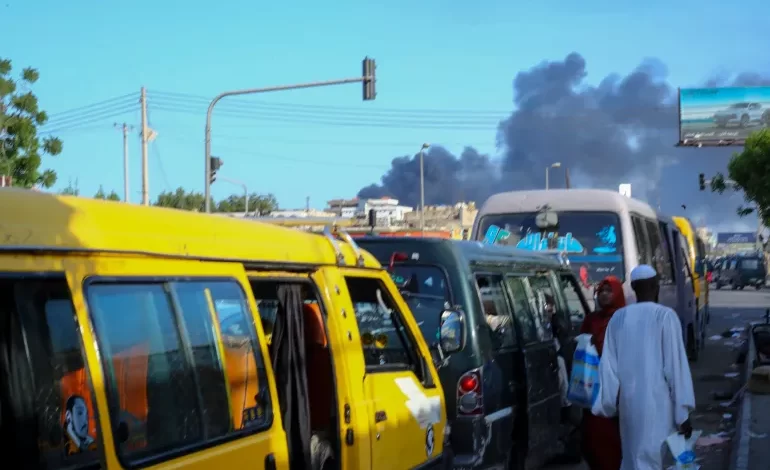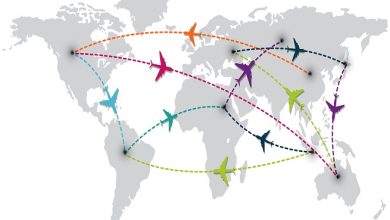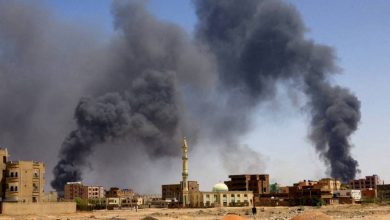Scenes of Life in Port Sudan Following Drone Attacks

Sudan Events – Agencies
More than a week after drones targeted several vital sites in the city of Port Sudan in eastern Sudan, the aftermath of the attack continues to impact daily life in the city, amid growing fears of a fuel and cooking gas crisis, as well as direct effects on the prices of goods and services.
In the early hours of the previous Sunday, drones launched attacks on the city’s strategic fuel depot, causing fires and plumes of smoke that lasted for more than three consecutive days, according to local sources and eyewitnesses.
Sudan’s Minister of Energy and Oil, Mohieldin Naim, stated to local media that the depot contained more than one shipload of diesel, which significantly increased the scale of the losses. Less than 24 hours later, another drone attack targeted a second fuel depot at Port Sudan’s southern port, intensifying fears of an imminent shortage of fuel and cooking gas.
Queues and Price Hikes
The day after the attacks, cooking gas distribution centers and fuel stations saw notable congestion, with vehicles and citizens lining up in long queues, despite reassurances from local authorities who visited the fuel stations to assess the situation on the ground.
However, the impact did not stop there. The attacks quickly affected the prices of goods and services. Citizen Nasr al-Din Othman, who supports a small family in Port Sudan, said, “The price increases are unjustified and have reached around 100%.” He noted that the price of two 20-liter water containers rose from 600 to 1,500 Sudanese pounds (1 USD = 600 SDG), a block of ice increased from 10,000 to 50,000 pounds, and the price of a kilo of sugar jumped from 2,400 to 3,000 pounds.
He explained that the prices of consumer goods dependent on transportation have spiked sharply due to the “manufactured fuel crisis,” despite public transport fares remaining unchanged. However, the shortage of available vehicles was noticeable, as many waited in long lines at fuel stations.
Direct Impact
The ongoing war in Sudan, now in its third year, has deeply affected various sectors, particularly the energy sector. Preliminary estimates suggest losses in the oil sector have exceeded $20 billion, while overall economic losses are estimated at around $600 billion.
In the Port Sudan market, Mohamed Ahmed, a “rickshaw” driver, said, “Trip fares haven’t changed because fuel prices at the stations haven’t increased.” He explained that the only difference is the long wait time to obtain fuel, which reduces daily working hours.
Speaking to Al Jazeera Net, Mohamed added: “Often, I let passengers decide the fare themselves. I haven’t raised my prices despite the extra pressure.” However, he noted that the shortage of public transport vehicles is due to them queuing at fuel stations, making it harder to find rides outside of the main stops.
For his part, citizen Babiker Mohamed Othman, a displaced person from Al-Jazirah State working in the Port Sudan market, said: “Life is largely normal, and market activity hasn’t been severely affected.” He added that market turnout remains strong and that people are adapting to the current circumstances.
Ahmed Youssef shared a similar view, stating that while the attacks did affect some aspects of daily life, he believes in the citizens’ ability to “absorb the shock and overcome its consequences,” adding that “the Sudanese people are capable of prevailing.”
Regular Supplies
In a special statement to Al Jazeera Net, Ahmed Al-Turifi, head of the National Chamber for Travel Bus Owners, said that the number of trips from Port Sudan to other cities increased slightly by about 10%, but ticket prices remained unchanged.
Al-Turifi noted that the crisis was only evident on the first day after the attacks, with a diesel shortage reported, but the situation normalized by the next day. He confirmed that fuel is available at all stations in the Red Sea State, with only a slight price increase of about 85 pounds per liter.
He concluded by affirming that petroleum supplies remain regular in most secure states, and the oil stockpile has not been critically affected despite the attacks.
In a related context, Sudanese police spokesperson Brigadier General Fath al-Rahman Mohamed al-Toum said that Khartoum receives around 6,000 returning citizens daily through various crossings and entry points. He added that police forces deployed on the ground are ensuring their safe arrival to different areas of the capital.
Speaking to Asharq Al-Awsat, he added that the police have carried out widespread deployments across all localities in Khartoum State, which the army has fully regained control over. However, he noted that there are still a few pockets of Rapid Support Forces (RSF) presence in some neighborhoods of Omdurman.



